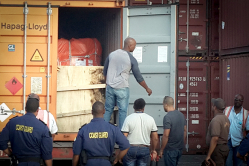The INTERPOL Orange Notice outlines potential criminal activity in relation to the falsification, theft and illegal advertising of COVID-19 and flu vaccines, with the pandemic having already triggered unprecedented opportunistic and predatory criminal behaviour.
It also includes examples of crimes where individuals have been advertising, selling and administering fake vaccines.
As a number of COVID-19 vaccines come closer to approval and global distribution, ensuring the safety of the supply chain and identifying illicit websites selling fake products will be essential.
The need for coordination between law enforcement and health regulatory bodies will also play a vital role to ensure the safety of individuals and wellbeing of communities are protected.
Vaccines prime target of organized crime
“Criminal networks will also be targeting unsuspecting members of the public via fake websites and false cures, which could pose a significant risk to their health, even their lives.
“It is essential that law enforcement is as prepared as possible for what will be an onslaught of all types of criminal activity linked to the COVID-19 vaccine, which is why INTERPOL has issued this global warning,” concluded Secretary General Stock.
As well as targeting COVID-19 vaccines, as international travel gradually resumes it is likely that testing for the virus will become of greater importance, resulting in a parallel production and distribution of unauthorized and falsified testing kits.
Online dangers
With an increasing amount of COVID-related frauds, INTERPOL is also advising members of the public to take special care when going online to search for medical equipment or medicines.
In addition to the dangers of ordering potentially life-threatening products, an analysis by the INTERPOL’s Cybercrime Unit revealed that of 3,000 websites associated with online pharmacies suspected of selling illicit medicines and medical devices, around 1,700 contained cyber threats, especially phishing and spamming malware.
To avoid falling victim to online scams, it is important to be vigilant, be skeptical and be safe, as offers which appear too good to be true usually are. Always check with your national health authorities or the World Health Organization for the latest health advice in relation to COVID-19.
See also
Related news











